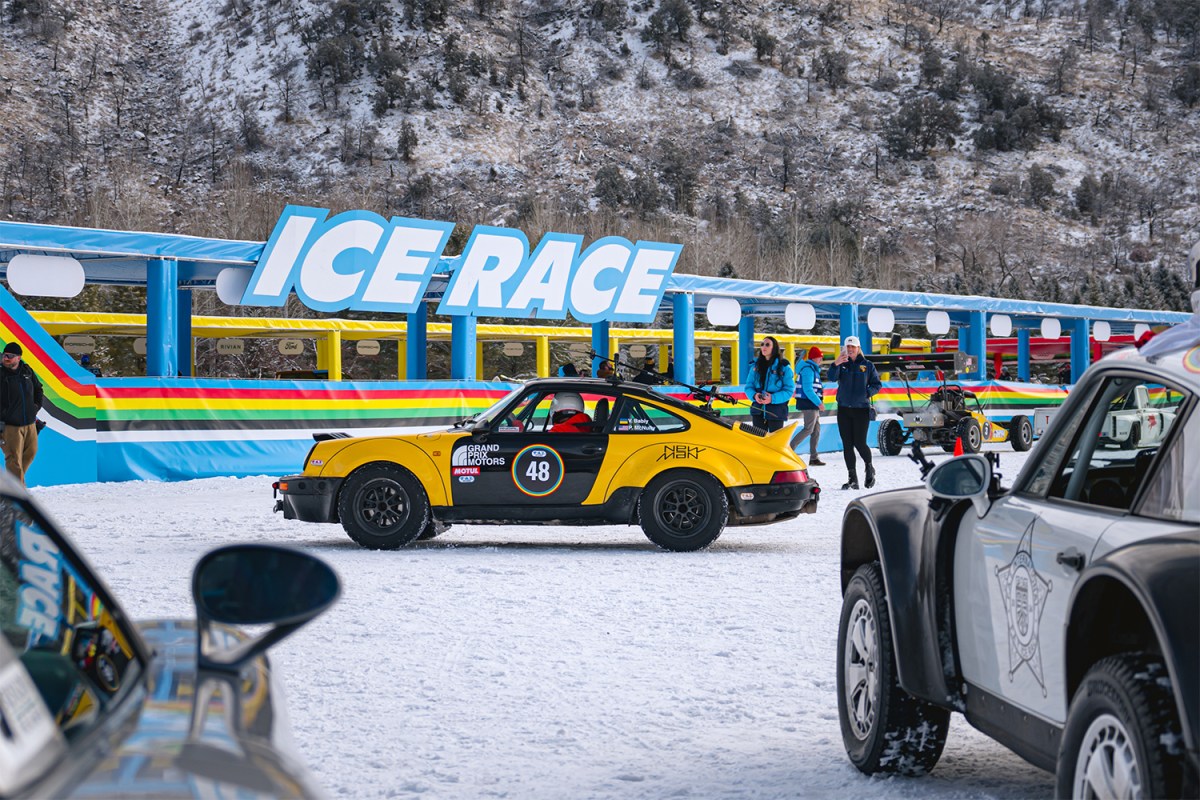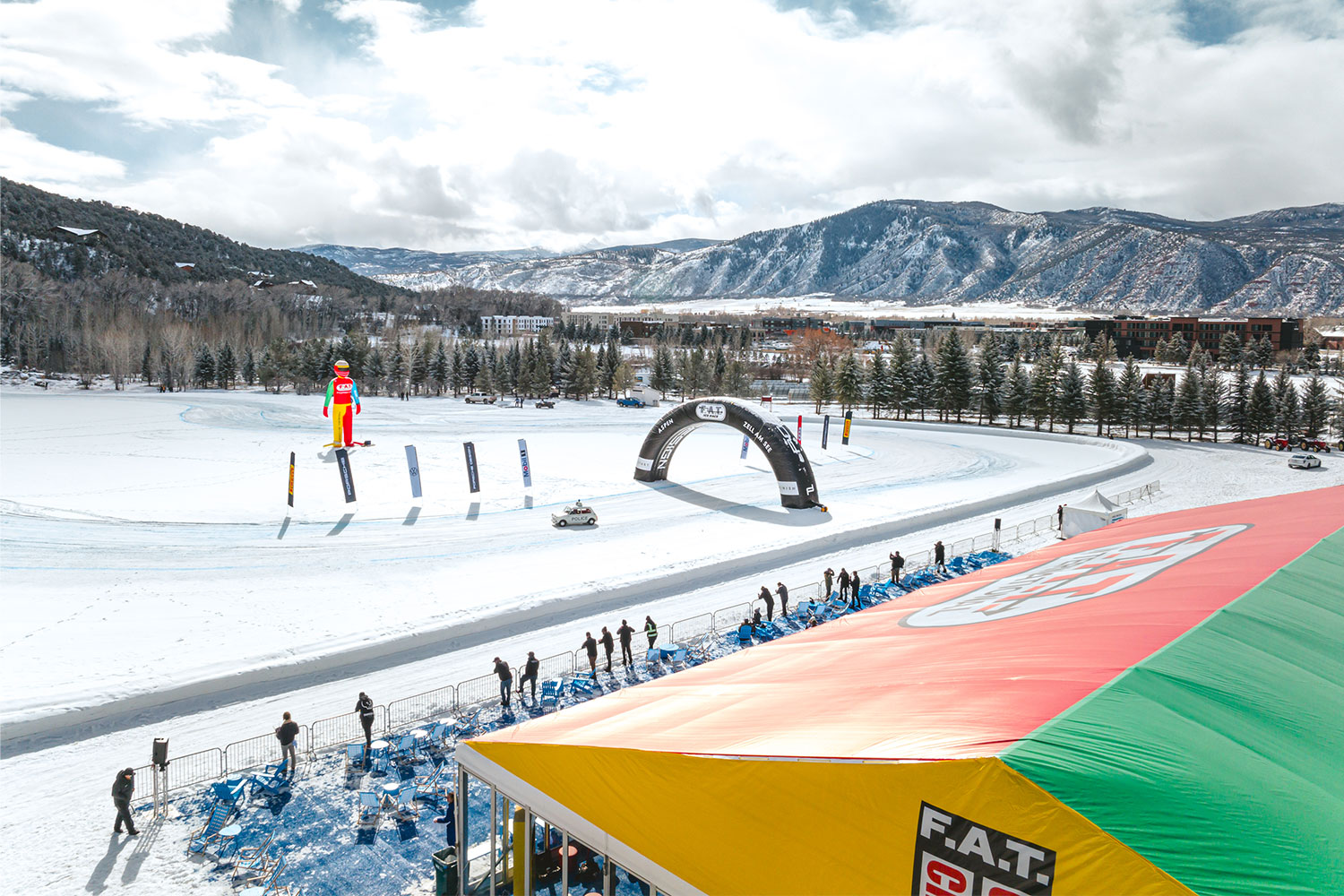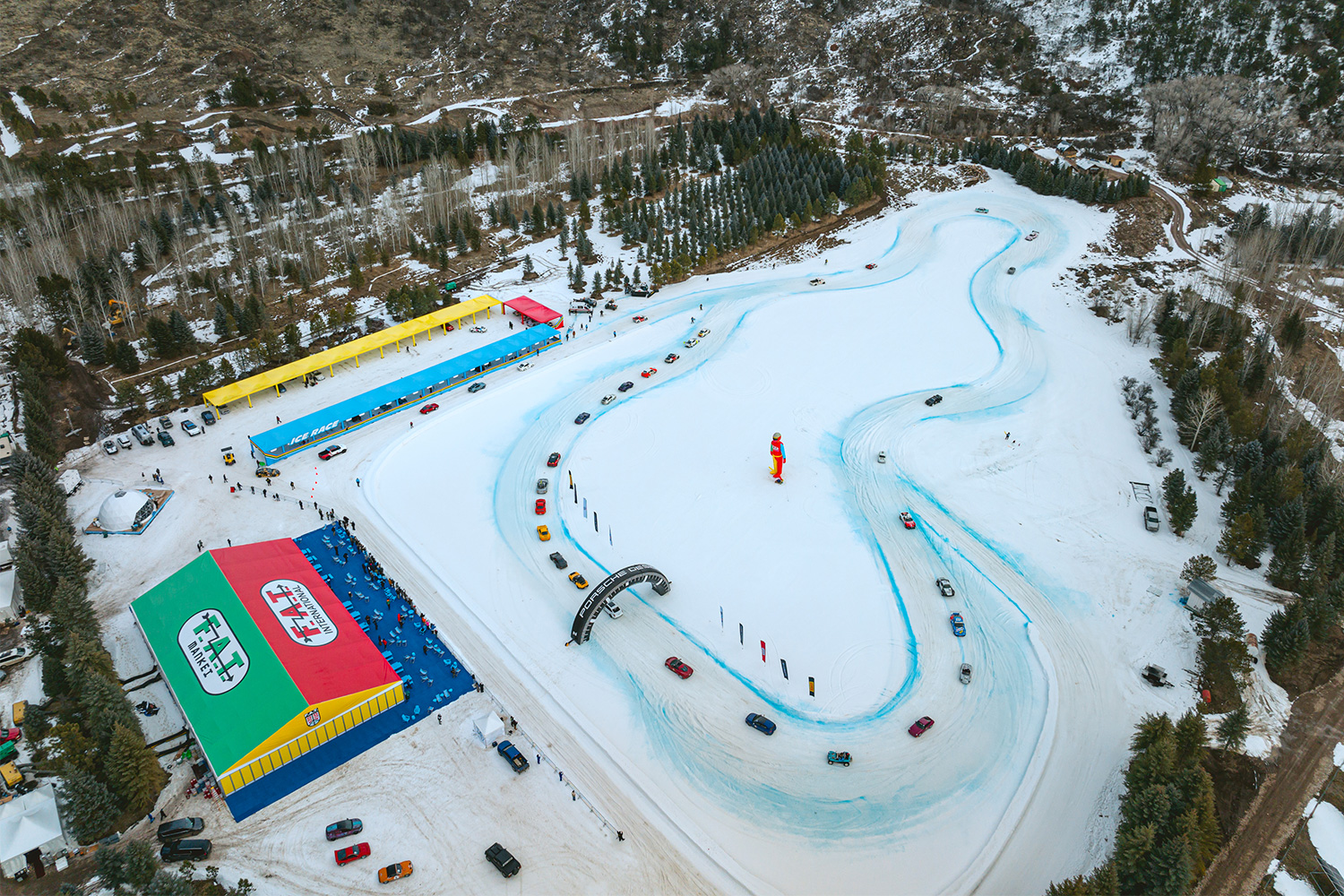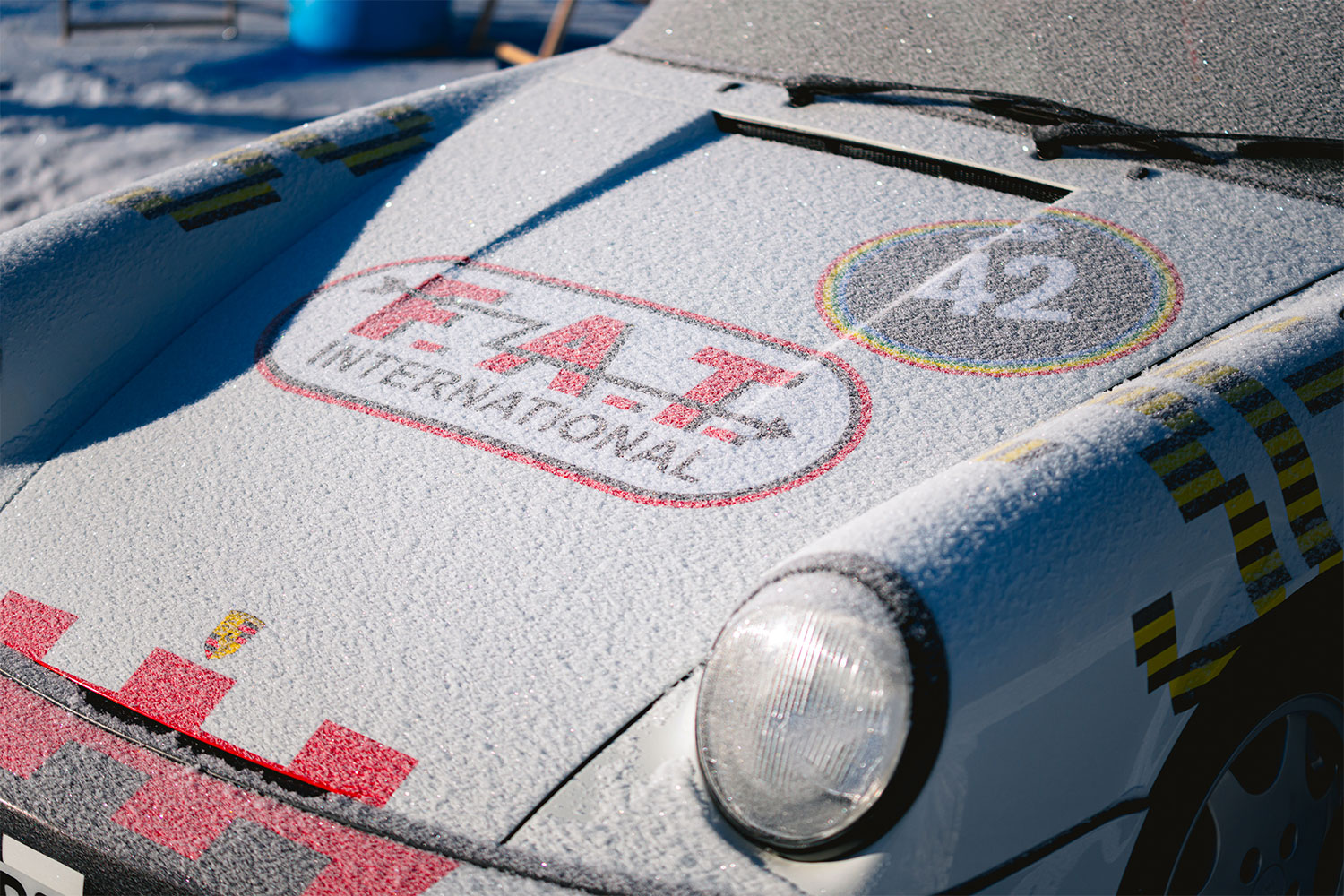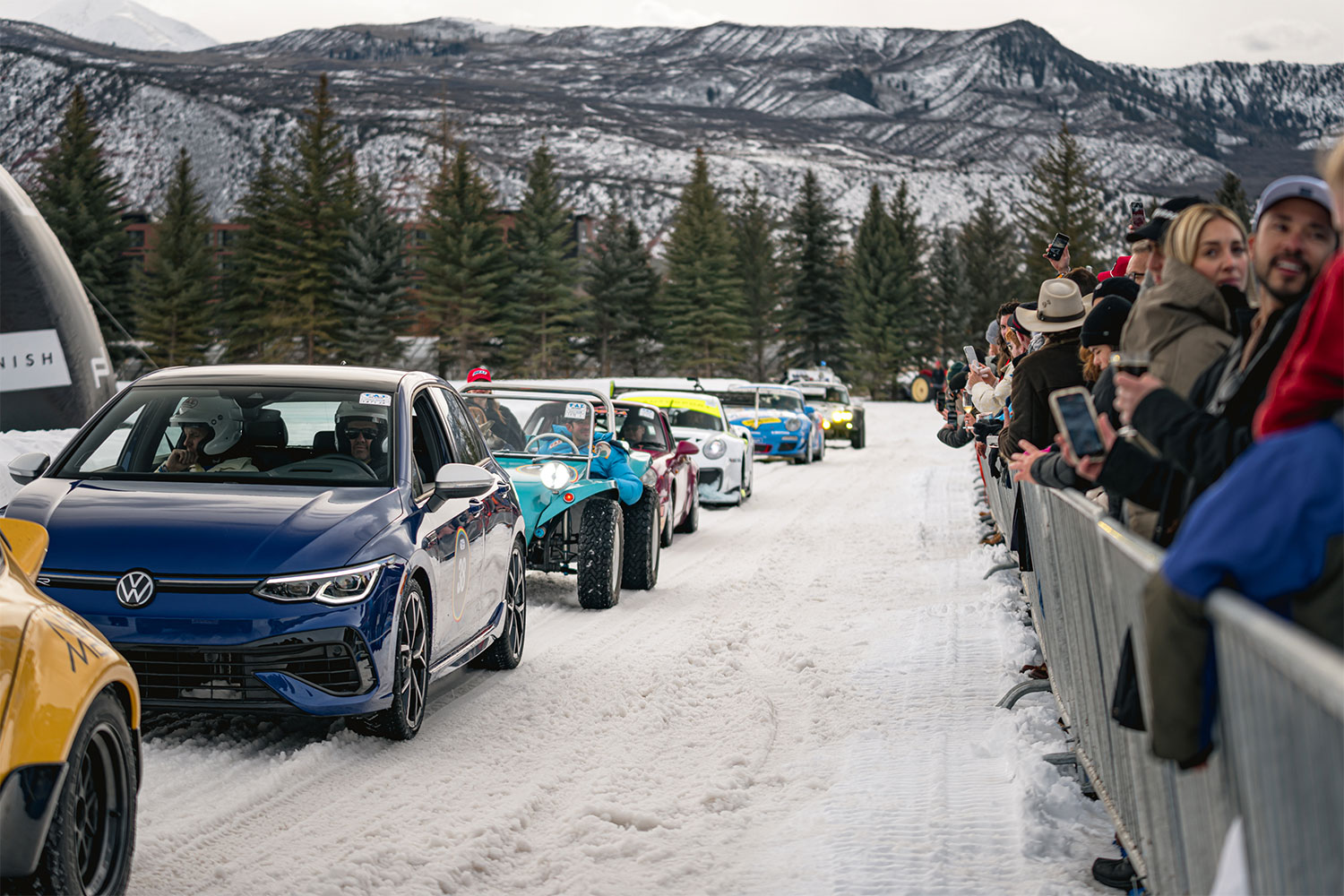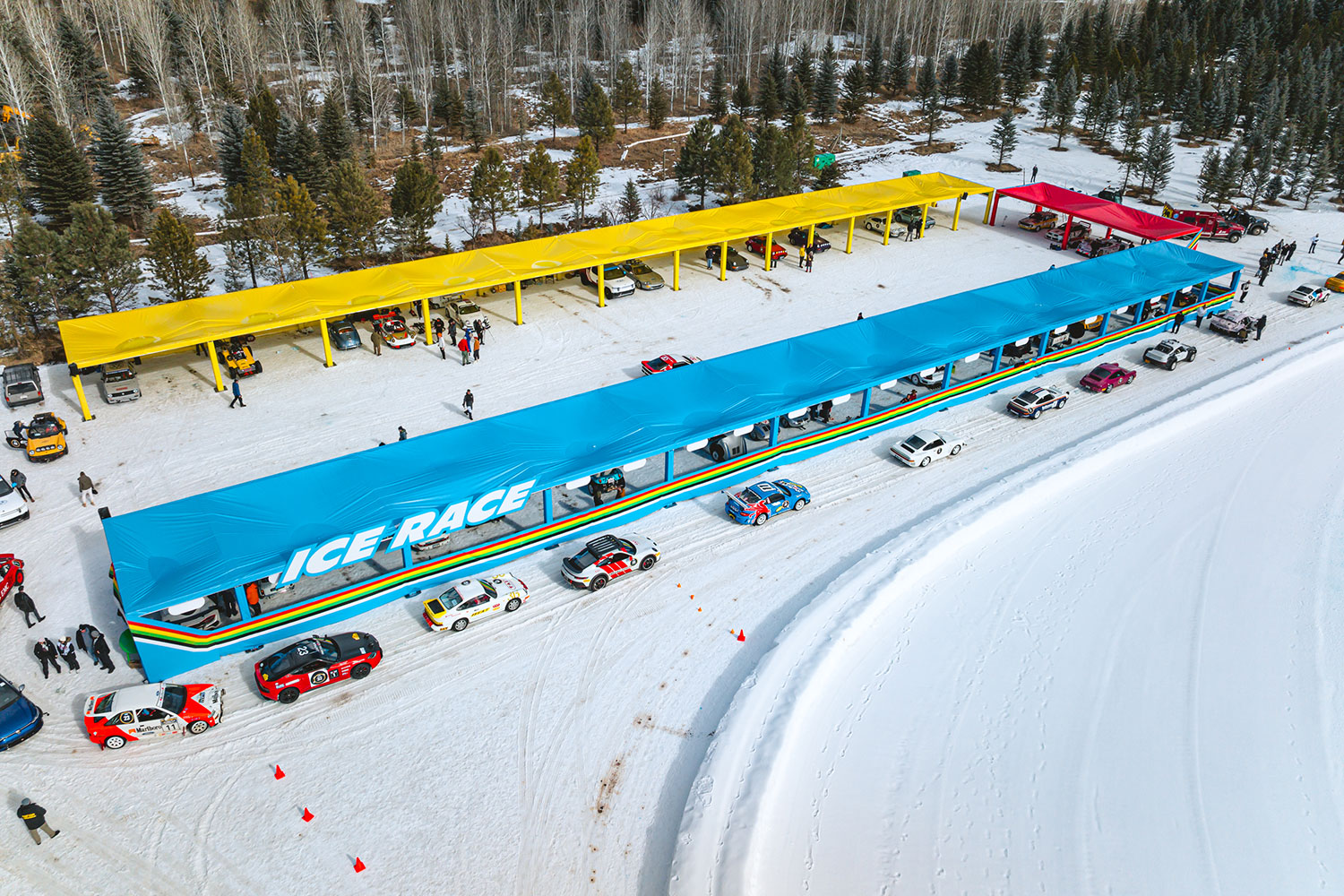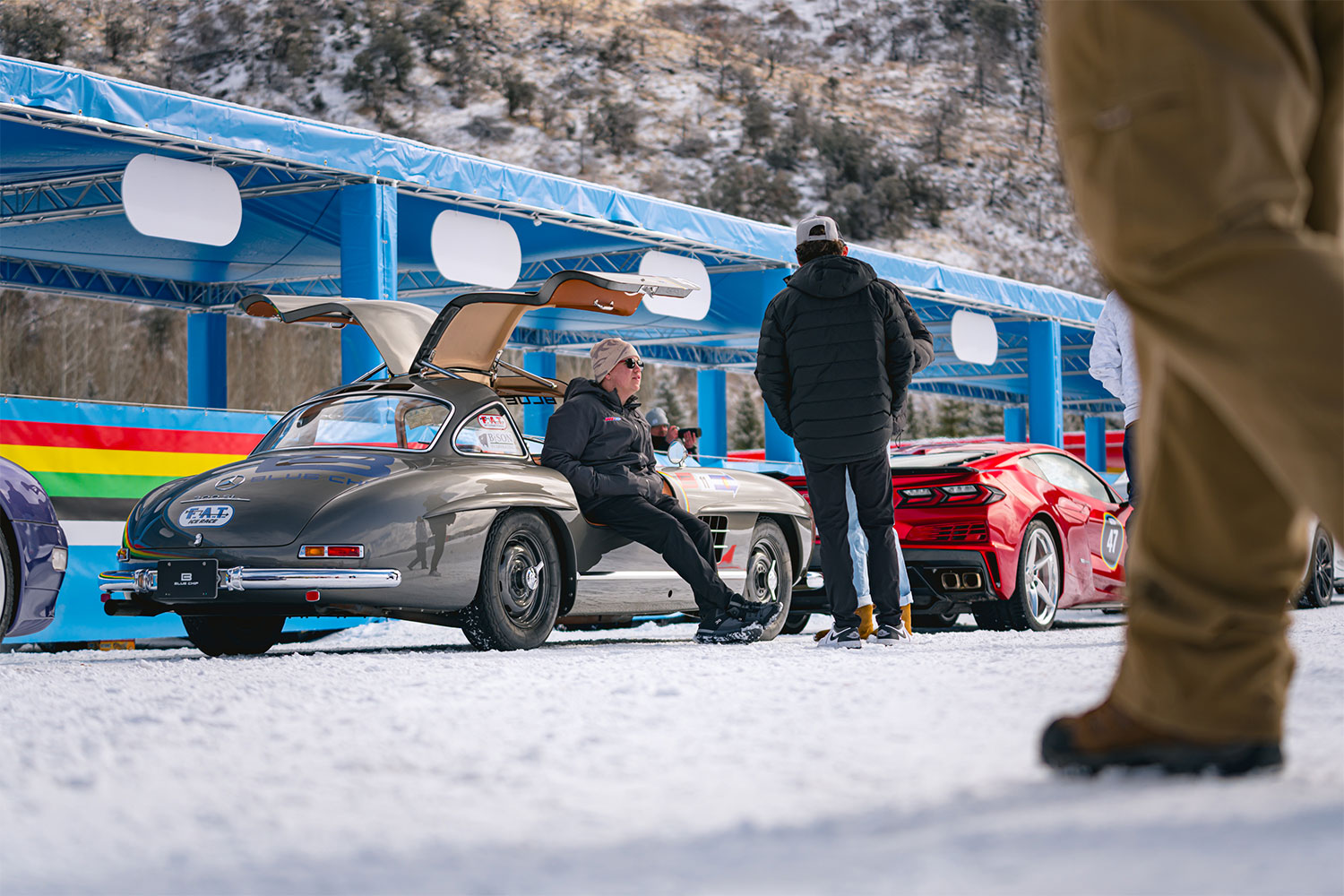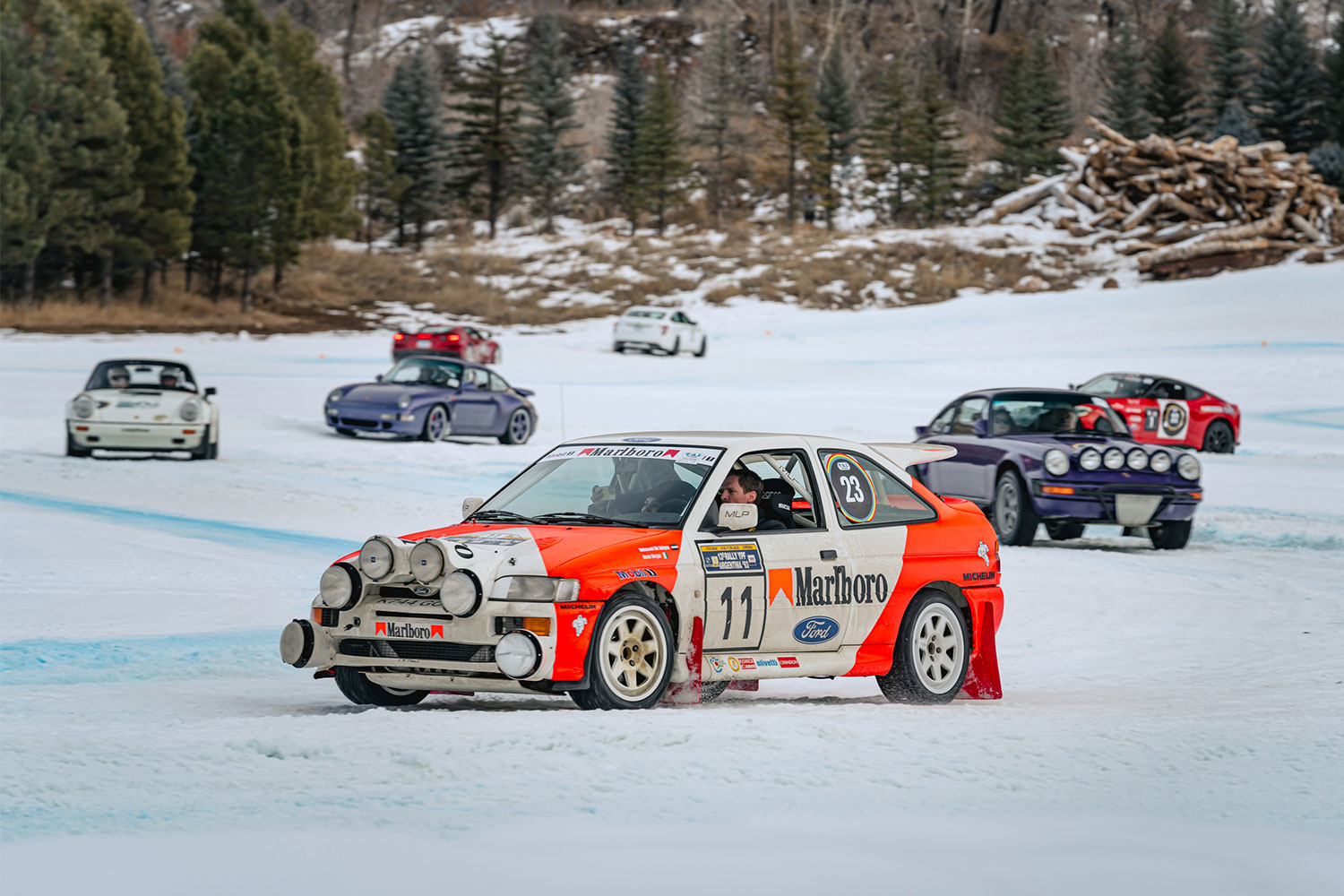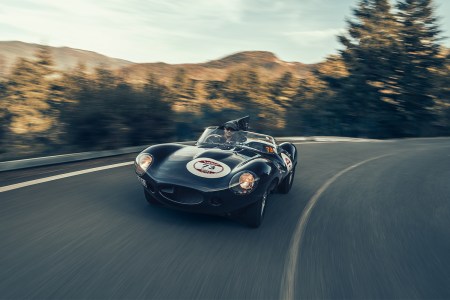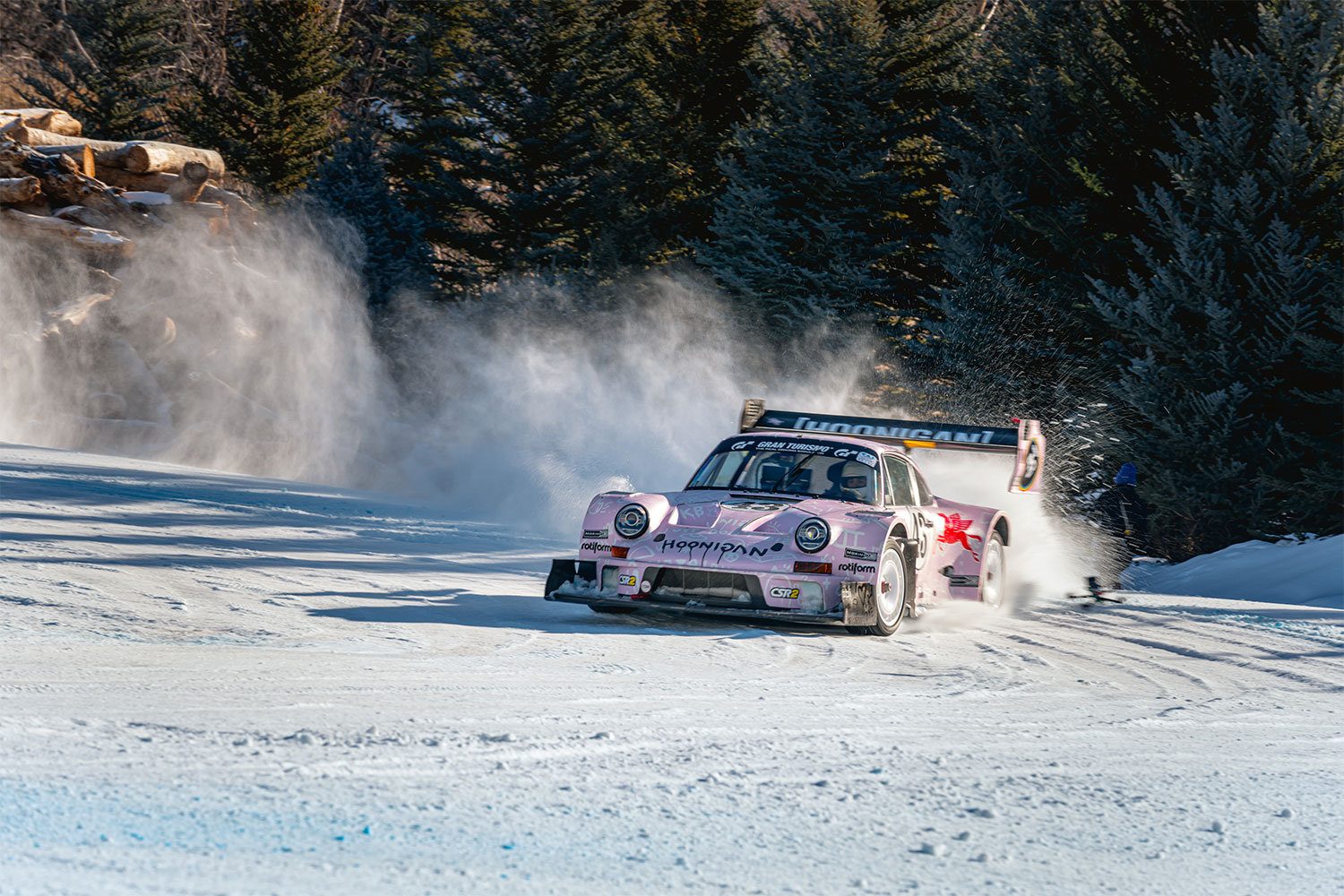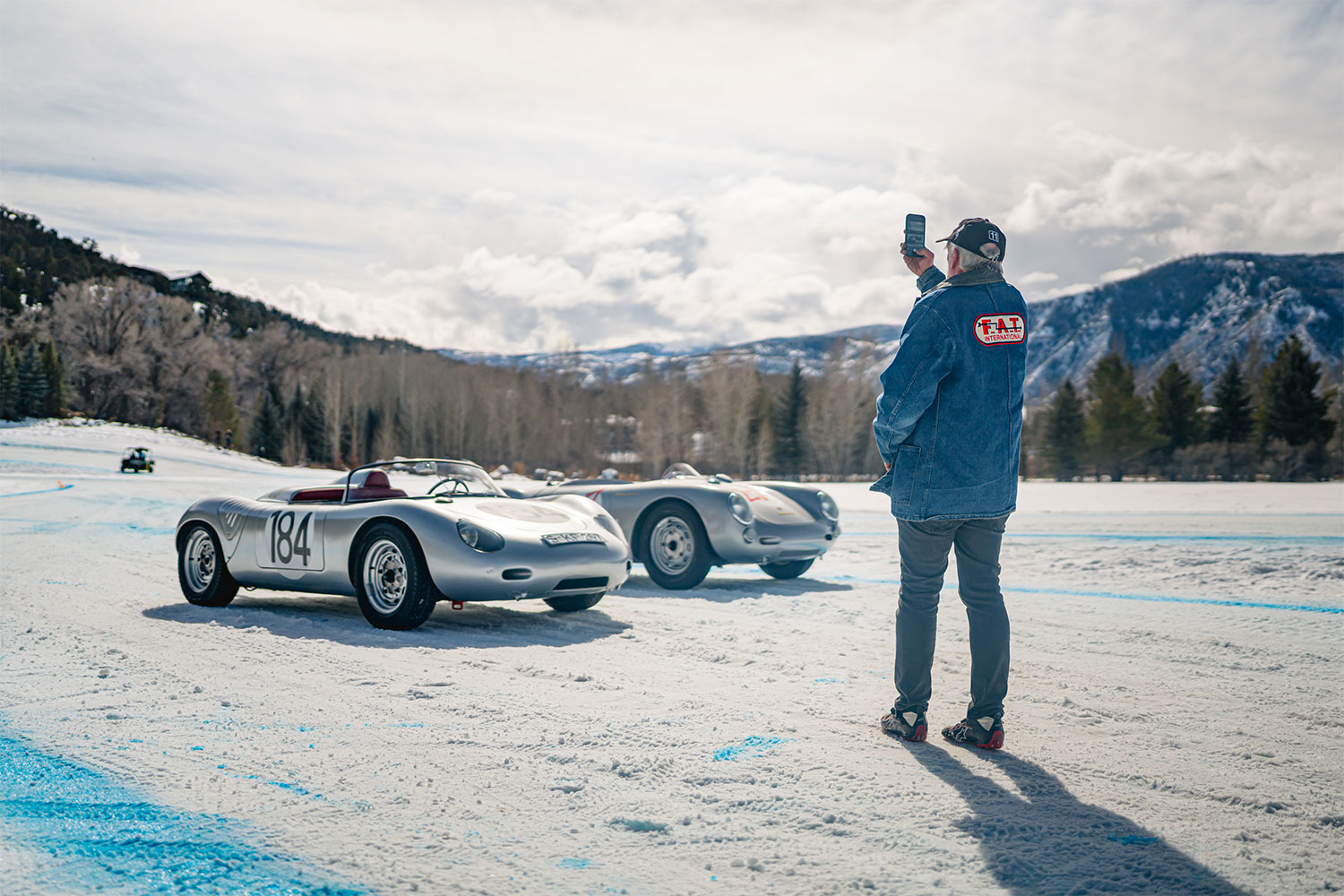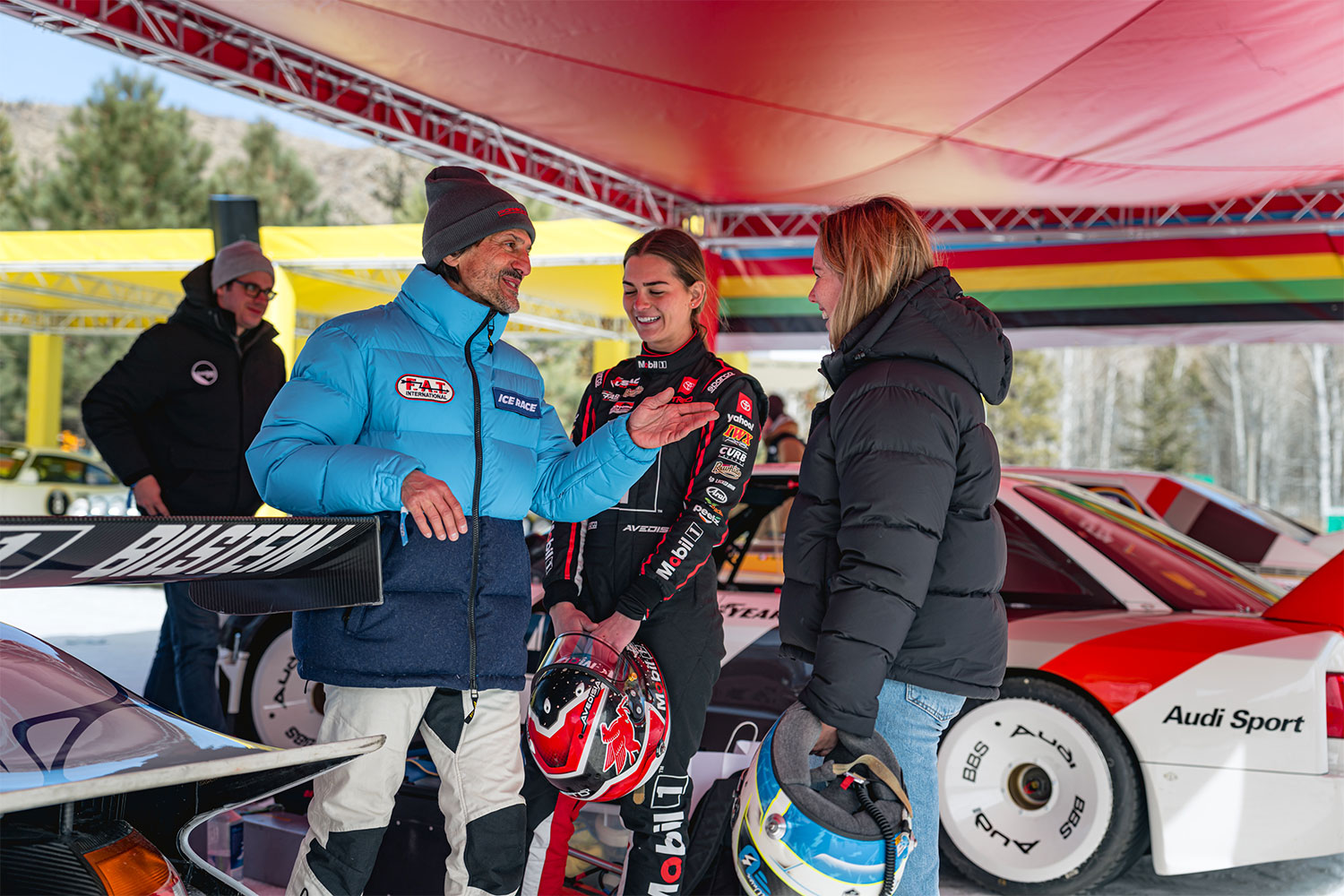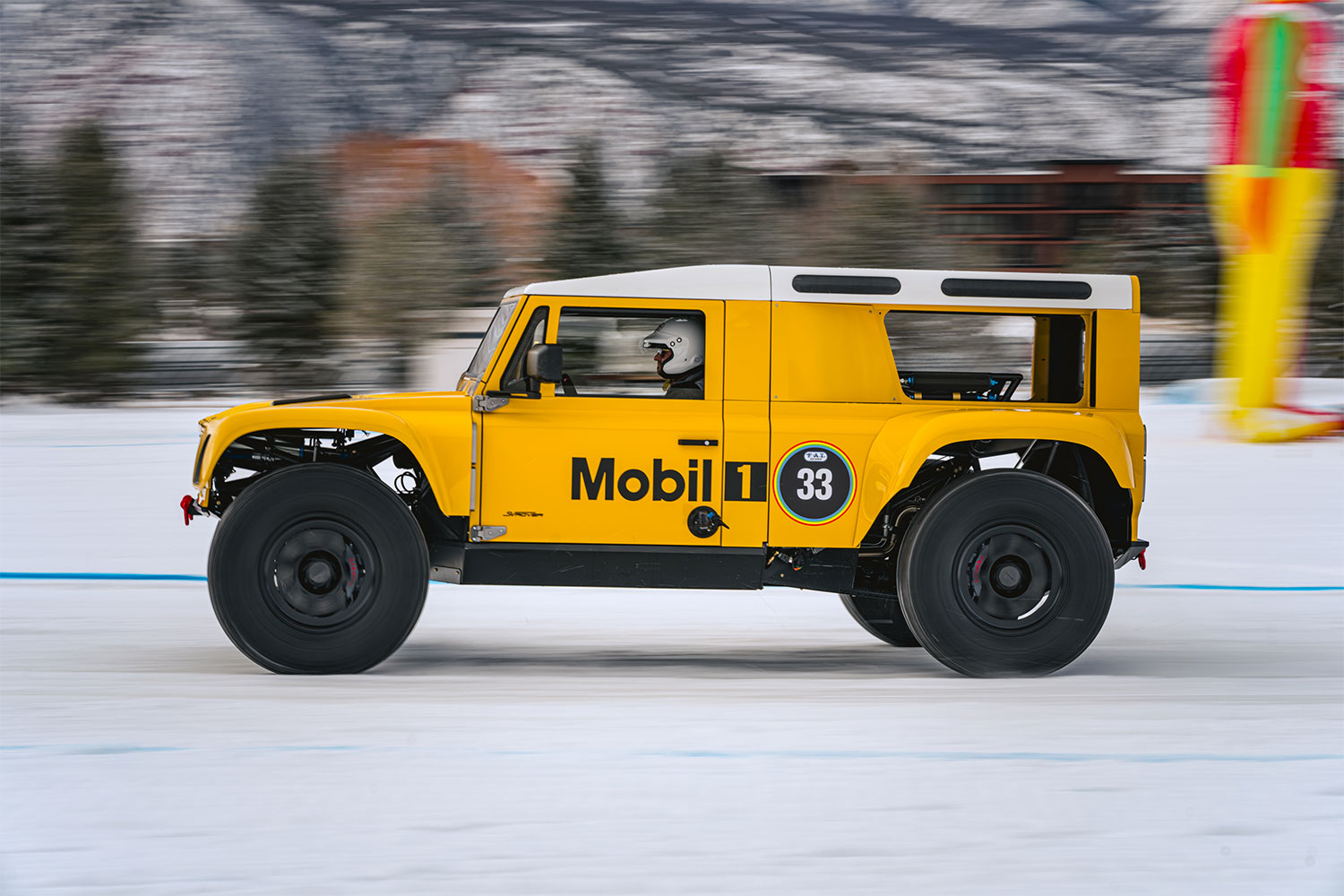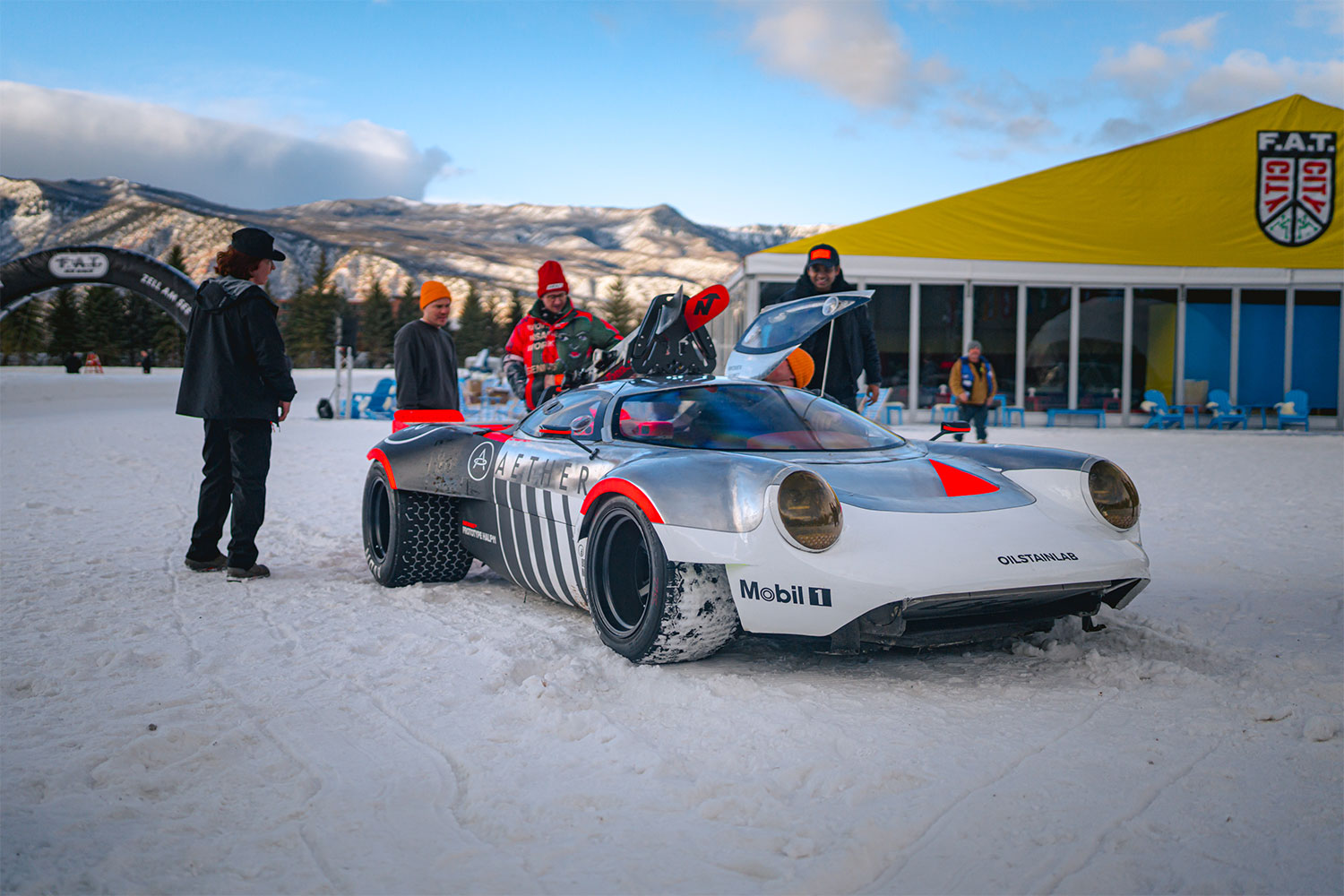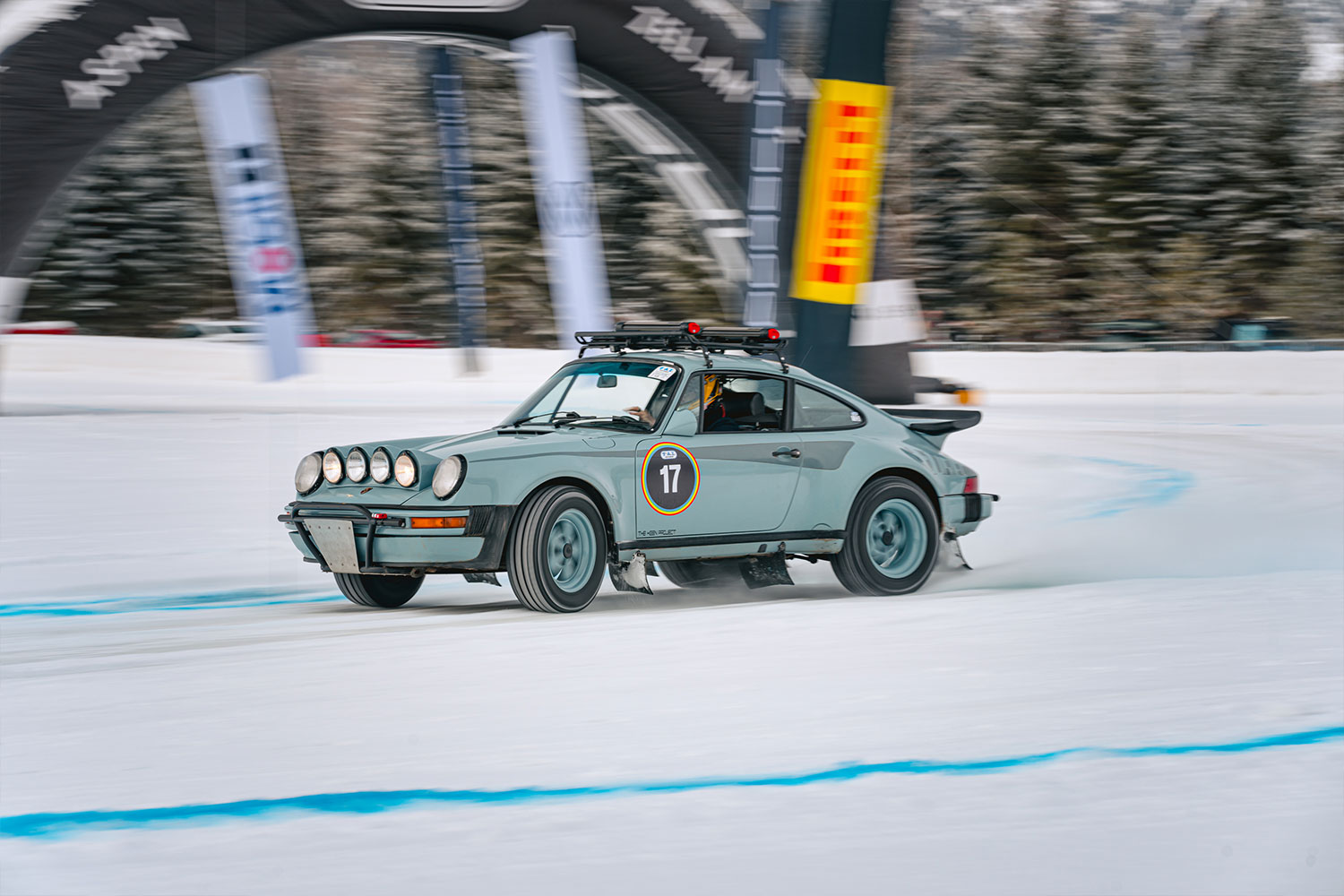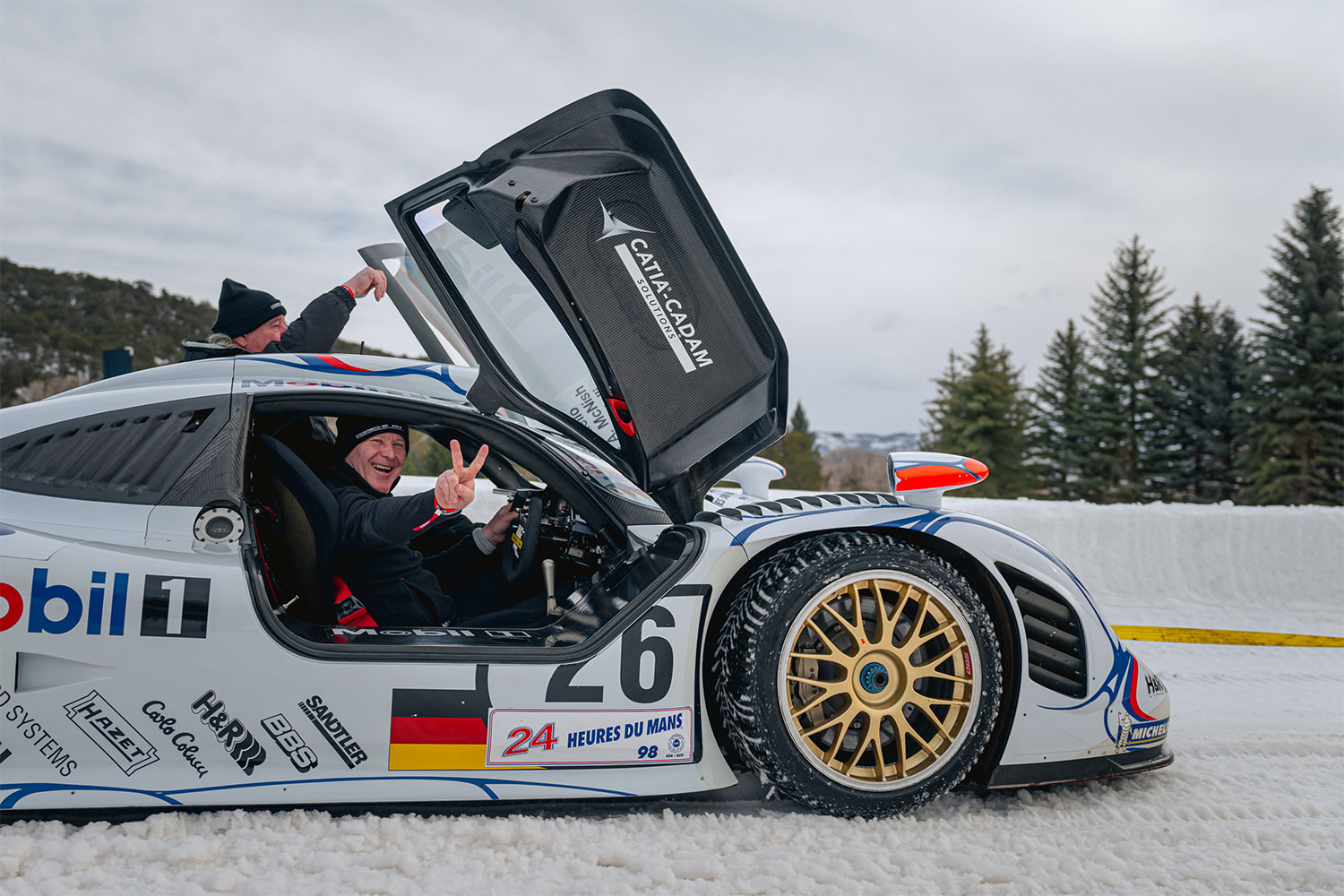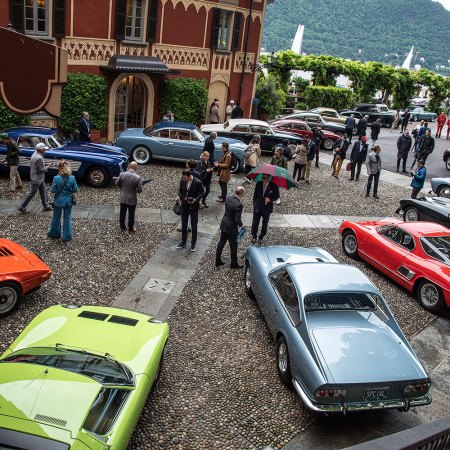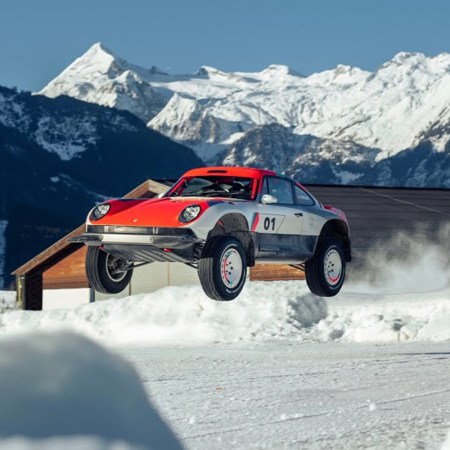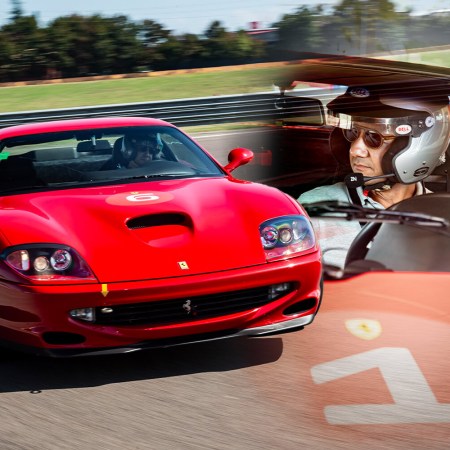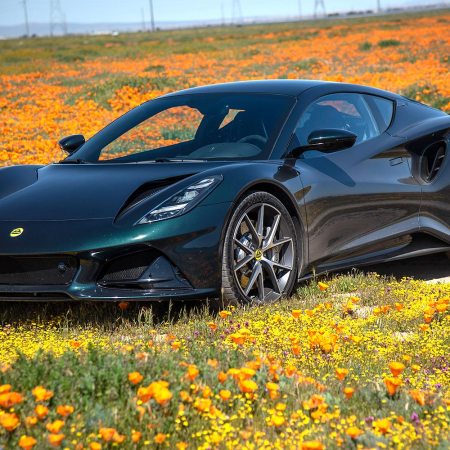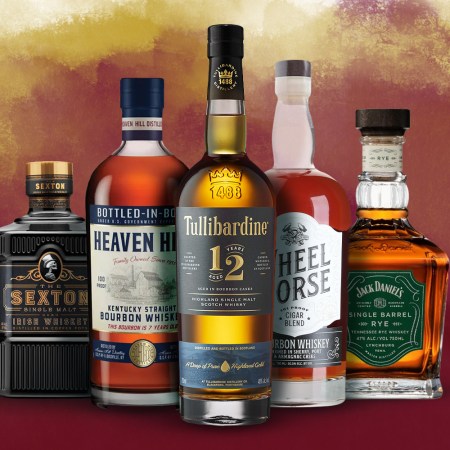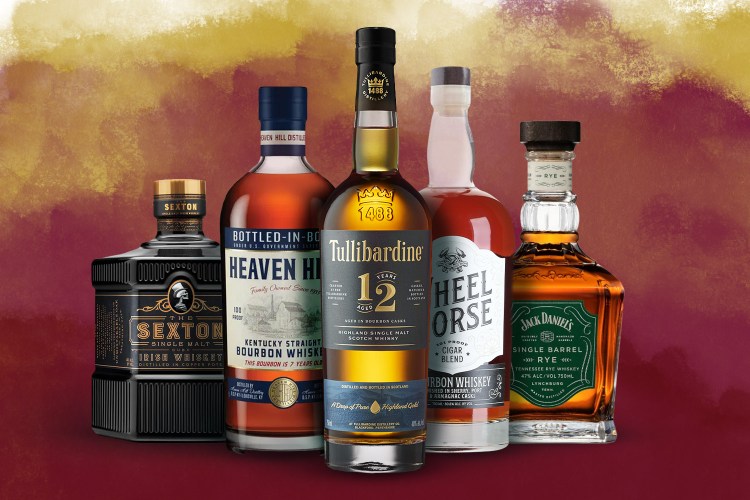The winter sun is cresting the Rockies just as it has every day for millennia, casting crisp, clear light across Aspen Valley in Colorado. This time though, the snow-dappled landscape is ringing with the wailing soundtrack of dozens of vintage and modern race engines. The lineup is a kaleidoscope of manic moments in motorsports history, from slinky ‘50s sports cars to uncorked ‘80s Group B rally cars to exuberant ‘90s exotics to the crown jewel, the Porsche GT1 racer that won Le Mans in 1998. The personalities are also larger than life, everyone from racer and Luftgekühlt founder Patrick Long to Andial co-founder Dieter Inzenhofer to Stéphane Ortelli, one of the three drivers who took the GT1 to victory at Le Mans. The cars, most of them outrageously valuable, some of them outright priceless, rip around a sinuous ice course spraying fresh powder as they slide through corners, sometimes hooking up with lurid drifts, sometimes spinning out and working their way back on track.
The inaugural North American edition of F.A.T. Ice Race, a winter race event previously held in Austria, is the brainchild of Ferdi Porsche. Yes, that Porsche — he’s the great-grandson of company founder Ferdinand Porsche. You’d expect the scion of an automotive dynasty to come with an outsized ego, or bear a burden of the inherited weight of generational wealth and responsibility, but the 30-year-old comes across more like an affable enthusiast than a legacy power broker or a Succession-style striver. Ferdi greets strangers with impish energy, and appears to interact with everyone in his orbit, from moguls to shuttle drivers, with disarming equality.
F.A.T. International, short for Française Allemand Transit, is a now-defunct French logistics firm that sponsored some of the most glamourous races in Europe during the golden era of motorsports. It’s no wonder Ferdi has rosy associations with the name, and eventually co-opted the counterintuitively attractive acronym by attaching it to his event (which was previously called the GP Ice Race). Ice racing looms large in the Porsche family, not to mention in Europe at large. The so-called Ferdinand Porsche Memorial Ice Races persisted from 1952 to 1973, and a 21st birthday ice-driving trip to Finland from his father sparked the inspiration to relaunch a reimagined version of the event in 2019. Thanks to seductive imagery beamed across FOMO-inspiring social media feeds, F.A.T. became a thing again, linking a long-lost livery with a fantastical cavalcade of ice-frosted cars and beautiful people.
The U.S. edition gained title sponsorship from Mobil1, with promotional support from Volkswagen, Rivian, Porsche Design, Aether and other heavy hitters. With the tony town of Aspen selected, an ice course was plotted just 25 minutes out of town, but warmer-than-average temperatures required a snowblower to convert an adjacent lake into a more solid driving surface. A few changes to the formula from the original event in Zell am See were required for the Stateside happenings. The venue limited the total number of attendees, including staff, to 499; spiked tires were banned in order to preserve the driving surface; and wheel-to-wheel competition was outlawed for an not-so-sexy reason: insurance policies.
High Speeds, Piazza Pit Stops and a $2M Jaguar: Welcome to Italy’s Modena Cento Ore
Recounting a four-day drive behind the wheel of a D-type Continuation in the latest entrant into the pantheon of road rallies
Ferdi, an architect by trade, clearly enjoyed a hand in designing the themed structures and hospitality suites that incorporated colorful graphics and a sophisticated, but relaxed feel. Key choices leaned on discretion, not messiness. For instance, there was no food or drink on display, but an army of jumpsuit-clad servers were quick to take orders and whisk in selections to guests with easy efficiency. Announcer Andrew Cramb provided earnest play-by-plays over a loudspeaker, and a DJ spun hip-hop and R&B remixes as cars slid across the course in search of the quickest lap times, or sometimes, for the sheer fun of sideways driving. Nighttime parties were promised as “lavish” in a pre-event press release, though the gatherings were more intimate than they were decadent.
The public perception of the event was certainly upscale, primarily because a weekend of VIP access was priced in excess of $7,000 (with individual days available for an entry-level price of $1,911). A subsequent backlash sent the automotive internet aflutter, which triggered a public statement explaining that permitting limitations necessitated a higher price to offset the lower total attendance. “I want F.A.T. to be for everyone,” Ferdi told me over dinner the night before the first of two main event days. He also explained that a free parade through town for the general public was being arranged, but a permitting snafu snarled the plan.
At the end of the long weekend, which ran from February 8 to 10, the two days on ice proved to be like no other automotive event I’ve experienced. There were exceptional cars, both sacred (like the only unrestored and very last Porsche 550 Spyder built) and profane (like Ryan Tuerck’s Toyota Supra that was stuffed with an 11,000-rpm V10 race engine). Other standouts included the late Ken Block’s stunning Hoonipigasus, a cartoonishly flared freakshow of a 911 that won Best in Show, and a Meyers Manx buggy finished in a pupil-dilating “Ocean Spray” metal flake paint that lived up to its “Smiles for Miles” slogan.
It was the good-natured guiding spirit of embracing fun over speed that gave the inaugural F.A.T. Ice Race a sheen of success. Sure, there were high-horsepower and high-dollar cars in attendance, but the prevailing feeling was one of appreciation for these fantastical mechanical creatures, and the joy of watching them slide across the placid Western landscape. While the quickest lap time was earned by the workaday Volkswagen Golf R32 wheeled by Tanner Foust (and a Chevrolet Corvette E-Ray piloted by Cody Bulkley came in 2nd-in-class on the second day), it was the gorgeous vintage and custom metal, not to mention the celestial personalities, that stole the show.
This article was featured in the InsideHook newsletter. Sign up now.
